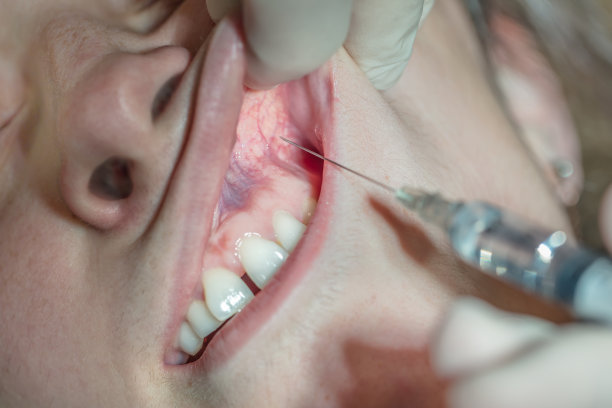Summary: Dental implant surgery is a significant dental procedure that requires careful planning and consideration to ensure its success and optimal recovery. Before undergoing surgery, patients should be mindful of various essential safety measures, including choosing the right dental professional, understanding the procedure and its risks, preparing for post-operative care, and considering overall health factors. This article elaborates on these critical aspects, providing insights to help patients make informed decisions that contribute to achieving the best outcomes from dental implant surgery.
1. Choosing a Qualified Dental Professional

When considering dental implant surgery, selecting a qualified and experienced dental professional is paramount. Not all dentists are trained in implantology, so its crucial to evaluate their credentials and expertise. Seek recommendations from friends or family and check online reviews to gauge the satisfaction of previous patients with the dental provider.
Additionally, a consistent and successful background in placing dental implants is essential. Ask potential dentists about the number of procedures they have performed and their success rates. An experienced dentist will also stay updated with advancements in implant technology, ensuring that patients receive the best care possible.
Communication is another vital factor. A reliable dental professional should be willing to discuss the entire procedure, including risks, benefits, and expected outcomes. This transparency helps build trust and ensures that patients feel more comfortable throughout their surgical journey.
2. Understanding the Procedure and Risks
Patients must educate themselves about the dental implant procedure before committing to surgery. Understanding each step, from the initial consultation to the placement of the implant and the healing process, allows for better preparation. Knowledge can alleviate anxiety and foster a sense of control over the situation.
Moreover, a thorough understanding of potential risks associated with dental implants is essential. These may include infection, nerve damage, and implant failure. By being aware of these risks, patients can discuss concerns with their dentist and develop strategies to mitigate them, enhancing their overall safety.
An informed choice regarding sedation options during the procedure is also crucial. Some patients may feel more comfortable with local anesthesia, while others may prefer sedation to reduce anxiety. Knowing the available pain management methods helps patients discuss their preferences openly with the dental team.
3. Preparing for Post-operative Care
Post-operative care plays a significant role in the overall success of dental implant surgery. Patients should follow their dentists instructions carefully to ensure proper healing. This includes understanding dietary restrictions, the importance of maintaining oral hygiene, and the necessity of follow-up appointments.
Diet after surgery should be carefully considered. Patients may be advised to stick to soft foods for a few days to avoid putting pressure on the implant site. Staying hydrated and avoiding smoking or alcohol is also essential for proper healing. Knowing what to expect during recovery can make the process smoother and less stressful.
Additionally, patients must be prepared to monitor their healing process. Recognizing signs of complications, such as excess swelling or unusual pain, can lead to timely intervention. Open communication with the dentist during recovery reinforces the importance of adhering to follow-up appointments and voice concerns as they arise.
4. Considering Overall Health Factors
Before undergoing dental implant surgery, its vital to consider overall health. Existing medical conditions, such as diabetes or heart disease, can impact healing and increase the risk of complications. Patients should share their complete medical history with the dental professional to facilitate a comprehensive evaluation.
Furthermore, medication can influence the surgical process. Patients must inform their dentist about all medications and supplements they are taking, as some may need to be paused or adjusted before surgery to ensure patient safety.
Its also wise to maintain optimal oral health before the procedure. Routine dental cleanings and addressing any existing dental issues can decrease the likelihood of complications and create a healthy environment for the implant. Prioritizing oral hygiene leading up to the surgery can significantly contribute to a positive surgical outcome.
Summary:
In conclusion, dental implant surgery requires meticulous planning and consideration of various essential safety measures for optimal outcomes and recovery. Selecting a qualified dental professional, understanding the procedure and its associated risks, preparing for post-operative care, and maintaining overall health are critical factors for patient success. Taking these steps will help ensure a smooth recovery process and a successful dental implant experience.
This article is compiled by Vickong Dental and the content is for reference only
Vickong Dental
Vickong Dental is a large medical group established in Hong Kong in 2008 by professors from well-known medical universities in Guangdong and Hong Kong, as well as medical doctors from key national '985' universities (including Master's supervisors and senior professors). The chain of branches brings together expert dentists with PhDs and Master's degrees from Hong Kong and Mainland China, committed to providing high-quality dental treatment.
"Vickong Dental Practices the University Motto of 'Healing and Serving Society,' with a Stable Operation for Sixteen Years. It Has Been honored with Hong Kong Enterprise Leaders's Choice,' and is a Global Trusted Implant Center for the Nobel Implant System. Recommended by Hong Kong Metro Broadcast and Guangdong Television, it Serves Customers from Over Thirty Countries and Regions, Gaining the Trust and Favor of Citizens from the Guangdong-Hong Kong-Macau Greater Bay Area and Surrounding Cities.

Thousands of customers' unanimous praise
The most recognized and highly recommended dental service by customers in the Guangdong-Hong Kong-Macau Greater Bay Area
We Ensure You Receive Detailed Care and Attention Here
Hong Kong standards, Shenzhen prices, Your Trusted English-speaking dentists

Vickong Dental Medical-Grade Instrument Disinfection Process
Vickong Dental Medical-Grade Instrument Disinfection Process

Vickong Dental Chain: A Warm and Comfortable Environment for Treatment






Appointment Hours

Q&A
Why choose Vickong Dental?
Vickong Dental practices the university motto 「Medicine to Benefit Society」, with each branch bringing together highly qualified dentists with doctoral and master’s degrees from Hong Kong and the Mainland, and has maintained seventeen years of steady operation。Recipient of 「2024 Hong Kong Enterprise Leaders Brand」, 「2025 Hong Kong Enterprise Leaders Brand」, a Nobel Biocare Global Trusted Implant Center, and a brand recommended by Metro Radio Hong Kong and Guangdong TV。
To date, we have served customers from more than thirty countries and regions,earning exceptionally high word-of-mouth recognition and trusted recommendations from residents across the Guangdong-Hong Kong-Macao Greater Bay Area and surrounding cities
We have eight major branches in Zhuhai、Shenzhen,and a consultation and service assurance center in Hong Kong,so you can book a free consultation at any time for any questions,which is very reassuring.
If I do not accept the quotation after the CT scan, will I be charged??
No! As long as the actual treatment has not started, you will not be charged any fees.
Will there be any additional charges during the treatment process?
No, there won’t be any additional charges. Before treatment begins, we will clearly explain the treatment plan and its corresponding fees. Only after the patient agrees and signs the consent form will we proceed with the dental service.
Can I pay in Hong Kong dollars?
Yes. Vickong Dental accepts payment in Hong Kong dollars. The amount will be converted based on the exchange rate of the day, and the applicable rate will be clearly communicated to you in advance.
Can I reschedule my appointment at any time?
Yes. Please contact us via **WeChat** or **WhatsApp** as early as possible, providing your original appointment time and details, along with your preferred new date and time slot for rescheduling.













